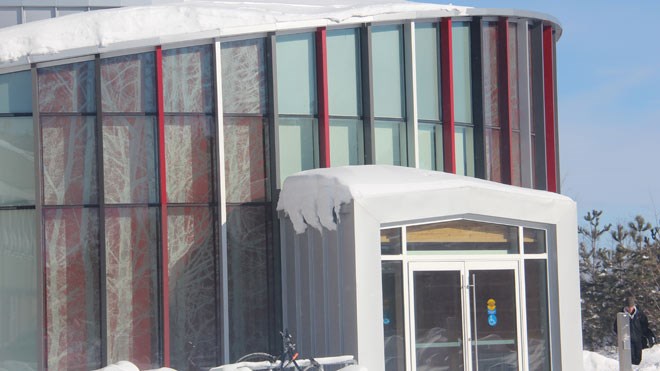The union representing Laurentian University’s professors, joined by two other groups, has filed an appeal of a court sealing order that prevents the public from accessing correspondence between Laurentian University and the Ministry of Colleges and Universities that relates to the university’s insolvency.
The appeal was filed March 5 by the Ontario Confederation of University Faculty Associations (OCUFA), the Canadian Union of Public Employees Ontario (CUPE Ontario), and the Laurentian University Faculty Association (LUFA).
Laurentian’s filed materials in this insolvency do not say much about the position of the Government of Ontario, which is the major funder of Laurentian, said a press release from the groups.
However, the university’s president filed an affidavit with two sealed exhibits, one from the Ontario government to Laurentian and the other from Laurentian to the Ontario government. These documents are sealed and not available to the stakeholders, the public, or the media, the press release said.
“The court’s Sealing Order raises vital questions about the transparency of Ontario’s role and its commitment to its public universities,” said the press release.
“OCUFA, LUFA, CUPE Ontario believe it is vital that stakeholders and the public have full, transparent access to this court-supervised insolvency and to all relevant files and materials, including the two sealed documents.”
The matter of the sealing order for letters written in late January between Laurentian and the province came up in a Feb. 10 court hearing related to the university’s filing under the Companies Creditors’ Arrangement Act (CCAA).
The lawyers for Laurentian’s staff called into question the need to keep these documents confidential, and the argument that viewing them could prejudice the university’s intended restructuring process.
DJ Miller, legal counsel for Laurentian, said the documents “reflect the commercial position of the university” and should not be released on the eve of the restructuring process, or at all.
“It is something that reflects the commercial position of the university and the reality of the financial circumstances in which it finds itself,” Miller said.
She said, however, that Laurentian’s financial position has been made “very, very clear” in other disclosures, although not in the exact paragraphs used in the aforementioned correspondence.
She said Ontario Superior Court Judge Geoffrey Morawetz, who heard the CCAA court application, had viewed the documents, as had the court-appointed monitor of the insolvency proceedings, Ernst & Young..***
Morawetz issued his endorsement of Laurentian’s CCAA proceedings Feb. 11, and in the process, upheld the sealing order.
He also released a more detailed reasoning Feb. 26 for his decision to keep the documents sealed.
In his supplementary endorsement, Morawetz said the documents in question are a letter from the Ministry of Colleges and Universities to Laurentian University dated Jan. 21, and a letter from LU to the Ministry dated Jan. 25.
Morawetz said that in his view, the disclosure of the exhibits (the sealed documents in question) could, at this time, be detrimental to any potential restructuring of LU. As such, the risk in disclosing the exhibits is real and substantial and imposes a serious risk to the future viability of LU, he said.
Secondly, Morawetz said it seems to him that the “commercial” interest related to the exhibits transcends the direct commercial interests of LU. It involves the entire LU community, including the faculty, students, employees, third-party suppliers, and the City of Greater Sudbury and the surrounding area.
“It is of paramount importance to all of these groups that all efforts to restructure LU be explored,” Morawetz said.
“In order to do so, it is necessary to maintain the confidentiality of the exhibits. The disclosure of the exhibits, at this time, could undermine the restructuring efforts being undertaken by LU.”
Third, Morawetz said he is required to consider whether there are any reasonable alternatives to a confidentiality order affecting the exhibits.
“At this time the stakeholders are involved in a mediation being conducted by Justice Dunphy,” he said.
“It could very well be that negotiations are at a sensitive stage or will shortly be at a sensitive stage. In my view, it would not be appropriate at this time to implement any alternative to a confidentiality order, as to do so could negatively impact the mediation efforts being conducted by Justice Dunphy.”
He said he is “satisfied, based on the evidence, that the salutary effects of the Sealing Order outweigh its deleterious effects, which in this context, includes the public interest in accessing the exhibits.”
***A previous version of this story had incorrect information about Laurentian University's court-appointed monitor. It is actually the firm Ernst & Young.
